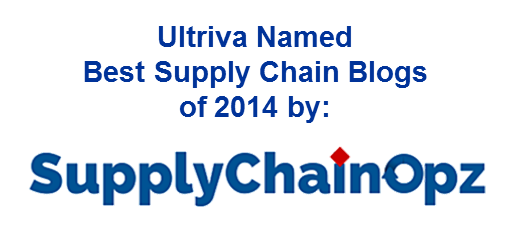This past summer Chad Smith, a Supply Chain expert and co-founder of the Demand Driven Institute presented a webinar with Ultriva about consumption-based replenishment. Smith is the co-author of Orlicky’s Material Requirements Planning, third edition (ISBN 978-07-175563-4) which suggested the result of MRP’s shortcomings and/or poor implementation is that companies have chronic and frequent shortages at various stages of the production, procurement, and fulfillment cycles.
 Smith went on to say these chronic and frequent shortages tend to lead to three main effects:
Smith went on to say these chronic and frequent shortages tend to lead to three main effects:
Unacceptable inventory performance. This is identified as having too much of the wrong material, too little of the right material, high obsolescence, and/or low inventory turns. Companies frequently can identify many of these problems at the same time.
Unacceptable service-level performance. Customers continue to put pressure on the company, which quickly exposes poor on-time delivery, low fill rates, and poor customer satisfaction. In addition, customers consistently attempt to drive prices down.
High expedite-related expenses and waste. In an attempt to fix the preceding two unacceptable business results, managers will commit to payment premiums and additional freight charges or increase overtime to fulfill promises. Typically, this effect is under-measured and underappreciated in most companies.
Ultriva addresses each of these three main short-comings of MRP systems.
Inventory can be an asset or a liability depending on how it is managed. Ultriva uses business rules, sizing algorithm, and collaborative visibility, to ensure the right part is at the right place at the right time. With a built-in work flows, exception alert mechanisms and rules engine, inventory managers are agile, proactive, and efficient.
It is common to see orders fulfilled in multiple shipments. This is a serious issue on the supply side which forces similar behavior on the customer side. Ultriva manages lot sizes and ties lead time to those lot sizes. This eliminates the common MRP problem of fixed lead time but varying lot sizes.
Constant push and pull by MRP runs lead to continuous bull whip effect in the supply chain. As buyers/planners are constantly fighting fires, expensive expediting becomes the norm. By incorporating a proactive process, Ultriva dramatically reduces the expediting costs. Having clear order visibility and access to customers’ consumption patterns, suppliers improve service levels and fill rates dramatically.
Ultriva provides real time continuous improvement metrics on all of these critical parameters.
Smith noted that while writing the third edition, the authors surveyed over 150 companies about their materials planning systems, noting that while a minority of companies report all three of these effective simultaneously to a severe degree, 83 percent of companies reported at least one of these effects to a severe degree over a period of multiple years.
Smith insisted, “To address these undesirable effects, the shortcomings inherent in conventional MRP must be fixed, and the MRP system must be implemented and supported properly.”



